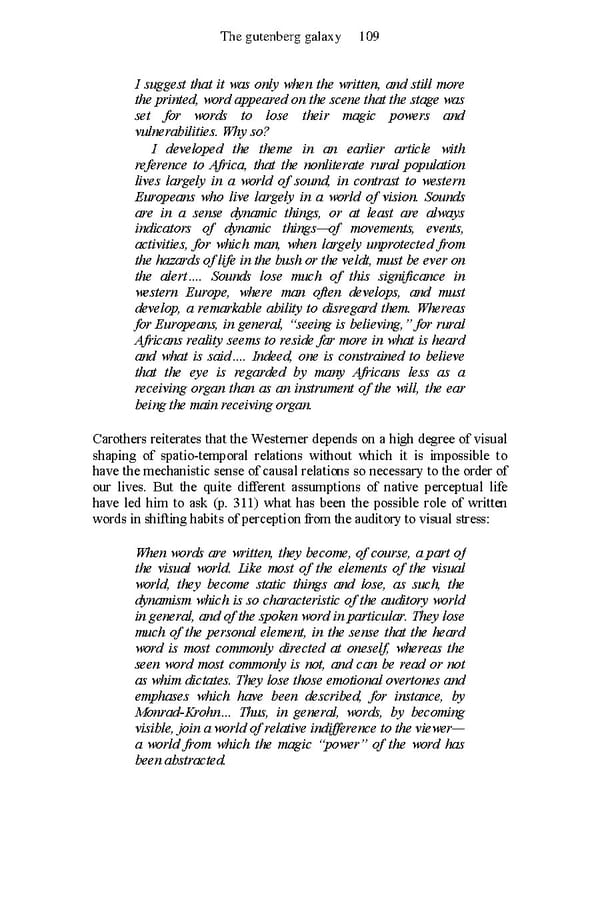The gutenberg galaxy 109 I suggest that it was only when the written, and still more the printed, word appeared on the scene that the stage was set for words to lose their magic powers and vulnerabilities. Why so? I developed the theme in an earlier article with reference to Africa, that the nonliterate rural population lives largely in a world of sound, in contrast to western Europeans who live largely in a world of vision. Sounds are in a sense dynamic things, or at least are always indicators of dynamic things—of movements, events, activities, for which man, when largely unprotected from the hazards of life in the bush or the veldt, must be ever on the alert…. Sounds lose much of this significance in western Europe, where man often develops, and must develop, a remarkable ability to disregard them. Whereas for Europeans, in general, “seeing is believing,” for rural Africans reality seems to reside far more in what is heard and what is said…. Indeed, one is constrained to believe that the eye is regarded by many Africans less as a receiving organ than as an instrument of the will, the ear being the main receiving organ. Carothers reiterates that the Westerner depends on a high degree of visual shaping of spatio-temporal relations without which it is impossible to have the mechanistic sense of causal relations so necessary to the order of our lives. But the quite different assumptions of native perceptual life have led him to ask (p. 311) what has been the possible role of written words in shifting habits of perception from the auditory to visual stress: When words are written, they become, of course, a part of the visual world. Like most of the elements of the visual world, they become static things and lose, as such, the dynamism which is so characteristic of the auditory world in general, and of the spoken word in particular. They lose much of the personal element, in the sense that the heard word is most commonly directed at oneself, whereas the seen word most commonly is not, and can be read or not as whim dictates. They lose those emotional overtones and emphases which have been described, for instance, by Monrad-Krohn… Thus, in general, words, by becoming visible, join a world of relative indifference to the viewer— a world from which the magic “power” of the word has been abstracted.
 Essential McLuhan Page 115 Page 117
Essential McLuhan Page 115 Page 117